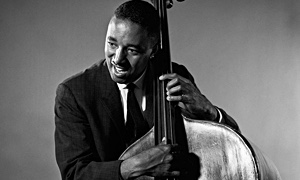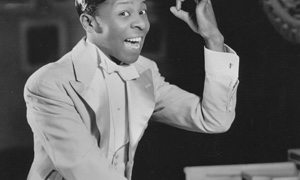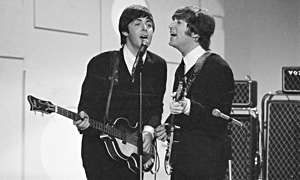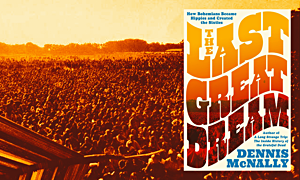Home » Jazz Articles » Book Review » Sound Experiments: The Music of the AACM by Paul Steinbeck
Sound Experiments: The Music of the AACM by Paul Steinbeck

Courtesy Roberto Masotti
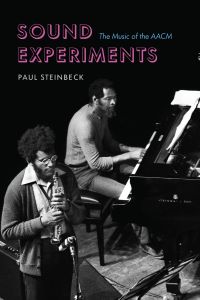 Sound Experiments: The Music of the AACM
Sound Experiments: The Music of the AACMPaul Steinbeck 272 Pages ISBN-13: 978-0-226-82953-1University of Chicago PressHardback 2022/ Paperback 2023
Paul Steinbeck's Sound Experiments is a historical narrative and technical analysis of the music of the Association for the Advancement of Creative Musicians (AACM). Steinbeck traces the chronology of this wildly creative organization from its origins in the mid-1960s to the present day through the course ten chapters, each dedicated to a particularly influential album, composition, or live performance. Published by University of Chicago Press, the hardback edition of Sound Experiments first appeared back in 2022 and is now even more accessible to readers in this new paperback edition.
Steinbeck's book begins with a detailed analysis of the two albums which sparked the AACM into life:
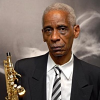
Roscoe Mitchell
saxophoneb.1940

Muhal Richard Abrams
piano1930 - 2017

Ornette Coleman
saxophone, alto1930 - 2015
The following nine chapters trace the evolution of the AACM discography over subsequent decades. From the 1970s, it covers classic albums such as For Trio by

Anthony Braxton
woodwindsb.1945

Henry Threadgill
woodwindsb.1944
Fred Hopkins
bass1947 - 1999
Steve McCall
drumsb.1933

Fred Anderson
saxophone1929 - 2010

Wadada Leo Smith
trumpetb.1941

Nicole Mitchell
fluteb.1967
The final chapter brings the narrative right into the present day, with the analysis of a 2015 album, Artifacts (482 Music), recorded by the Artifacts Trio comprised of cellist

Tomeka Reid
cello
Nicole Mitchell
fluteb.1967

Mike Reed
drumsb.1974
The author's analysis is undoubtably highly technical, and his book includes extensive musical notation and plates of transcriptions sourced through his personal connections to members of the AACM. Reading whilst simultaneously listening to the recordings cited is therefore a seamless and highly rewarding (if not sometimes quite exhausting) process. The sheer complexity and experimental nature of the AACM's music, in particularly its emphasis on collective improvisation, free form, and unconventional 'sound tools,' really tests the limits of standard musical notation. This is something that AACM constantly grappled with, and their ability to experiment with a mixture of strange symbols, mathematical approximations, colors and words to depict their musical intentions is seriously impressive. Even for readers who do not read music so fluently, the inclusion of highly visual examples of non-standard notation results in an engaging and highly immersive reading experience.
Steinbeck's focus is not exclusively musical; he remains interested throughout with the social, political, and economic forces that underpinned the evolution of the music. Successive generations of AACM musicians played a crucial role altering perceptions of 'art' globally, not only in music but across other domains such as visual art, academia and fashion. They were especially important in breaking down the racial barriers which traditionally segregated 'white experimental composers' from 'African-American jazz musicians.'
The music of the AACM is certainly some of the most artistically challenging music ever recorded. Sound Experiments is therefore an invaluable companion for those looking to dip their toes into this fascinating discography, as well as a rich source of information for those looking to dive more deeply into the depths of musical analysis.
Tags
Book Review
Tom Spargo
United States
Illinois
Chicago
Roscoe Mitchell
Muhal Richard Abrams
anthony braxton
Henry Threadgill
Fred Hopkins
Steve McCall
George Lewis's
Fred Anderson
The Great Black Music Ensemble
Wadada Leo Smith
Nicole Mitchell
Artifacts Trio
tomeka reid
Mike Reed
Comments
PREVIOUS / NEXT
Support All About Jazz
 All About Jazz has been a pillar of jazz since 1995, championing it as an art form and, more importantly, supporting the musicians who make it. Our enduring commitment has made "AAJ" one of the most culturally important websites of its kind, read by hundreds of thousands of fans, musicians and industry figures every month.
All About Jazz has been a pillar of jazz since 1995, championing it as an art form and, more importantly, supporting the musicians who make it. Our enduring commitment has made "AAJ" one of the most culturally important websites of its kind, read by hundreds of thousands of fans, musicians and industry figures every month.
Go Ad Free!
To maintain our platform while developing new means to foster jazz discovery and connectivity, we need your help. You can become a sustaining member for as little as $20 and in return, we'll immediately hide those pesky ads plus provide access to future articles for a full year. This winning combination vastly improves your AAJ experience and allow us to vigorously build on the pioneering work we first started in 1995. So enjoy an ad-free AAJ experience and help us remain a positive beacon for jazz by making a donation today.

Chicago
Concert Guide | Venue Guide | Local Businesses
| More...






 Buy Now
Buy Now






